Our faculty’s signature event, attracting top international research professors on the environment to campus
Each professor gives public lectures, teaches classes, and meets with professors and students. Described as a "fitting testament" to the late Walter Bean’s legacy of community involvement and commitment to youth, education and community, the professorship is made possible thanks to the generosity of TD Canada Trust and their commitment to building a sustainable future together with their partners.

Thank you to our past speakers
Denis Aheto - 2024
Shari Fox - 2023
Amber Wutich – 2021
Julian Agyeman – 2020
Jacqueline McGlade – 2019
Steven Cooke – 2018
Jeffrey D. Sachs – 2017
Ben Schwegler – 2016
Thomas Stohlgren – 2015
Norio Okada – 2012
Roger Pielke Sr. – 2011
Stephen Schneider – 2010
Joseph MacInnis – 2010
Andras Szöllösi-Nagy – 2009
Tavi Murray – 2008
Steve Hrudey – 2006
Frank Schwartz – 2005
Flora MacDonald – 2004
Kelly Thambimuthu – 2003
Jorg Imberger – 2002
Naresh Singh – 2001
Jeffrey Luvall – 2000
Joseph MacInnis – 1999
David Schindler – 1998
Ursula Franklin - 1994
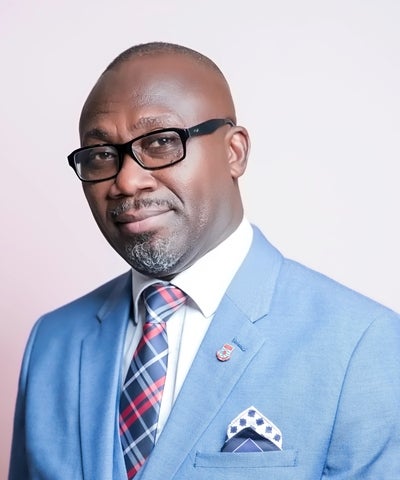
Dr. Denis Aheto- 2024
Denis W. Aheto is the Pro-Vice Chancellor (2024 - 2027) of the University of Cape Coast. A Senior Professor of Coastal Ecology and Interdisciplinary Oceans Studies and Foundation Director of the Centre for Coastal Management - The Africa Centre of Excellence in Coastal Resilience (ACECoR) at the University of Cape Coast. He holds PhD and MSc Degrees in Environmental Sciences and Tropical Aquatic Ecology respectively from the University of Bremen. He also holds an MSc. Degree in Rural Development from the Swedish Agricultural University.
Professor Aheto is a distinguished scholar, with over 15 years of scientific project management experience. He is the authorized representative of institutional donor funded projects in marine/coastal and fisheries management at the University of Cape Coast funded by the World Bank, African Union, USAID, DANIDA among others. He serves as technical advisor to the West Africa Coastal Areas Management Program of the World Bank.
Watch the lecture on Youtube.

Dr. Shari Fox - 2023
Senior Research Scientist with the National Snow and Ice Data Center at the University of Colorado Boulder, and the Director of the Ittaq Heritage and Research Centre in Clyde River, Nunavut.
"The Meaning of Ice: Co-production of knowledge and community action in a changing Arctic"
In her talk, Dr. Shari Fox drew on experience from over two decades of close collaboration with Inuit communities in the Arctic. Illustrating the powerful ways our understanding of the changing Arctic climate can be advanced when we link Inuit knowledge and visiting science.
She used examples from community-led research, land-based programs, and harvesting to show how co-produced knowledge, Inuit self-determination in research, and supporting community-based action are fundamental to addressing climate and environmental challenges in the Arctic and beyond. Dr. Fox centred Arctic weather and sea ice in the story.
As part of her visit Shari Fox, collaborated with Inuit Photographer, Robert Katuk, on Art Exhibit to bring her lecture to life.
Watch the lecture on Youtube.
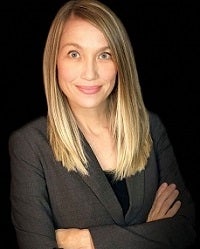
Amber Wutich - 2021

Julian Agyeman - 2020

Jacqueline McGlade - 2019
Frank Jackson Foundation Professor of the Environment at Gresham College, Professor of Resilience and Sustainable Development at the University College London, Professor and Director of Maasai Mara University Green Growth Development Research and Training Centre.
“Together, Building Sustainable Communities”
In this talk Jacqueline McGlade explored how to create ‘collaborative ecosystems’ to help people and their environments flourish. Pushing UN Sustainable Goal 17 to the forefront, Dr. McGlade explored how we can revitalize the global partnership for sustainable development.
Watch the lecture on Youtube
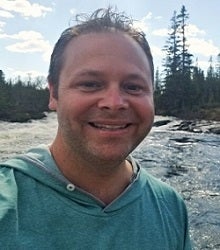
Steven Cooke - 2018
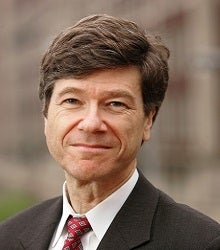
Jeffrey D. Sachs - 2017
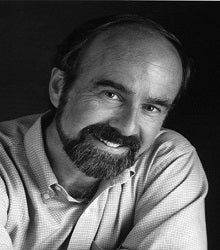
Ben Schwegler - 2016
Senior Vice President & Chief Scientist, Walt Disney Imagineering Research & Development
“Creating Sustainable Cities from the Ground Up – Lesson from Disney Research”
The scale, speed and impact of this is unprecedented. For this effort to be sustainable, new conceptual models of urban planning as well as new technologies in design, financing, and construction management of major infrastructure projects have to be developed and tested in a very short time. This lecture provides a view from the front lines of this amazing real world challenge with Dr. Ben Schwegler and his lecture titled Sustainable Cities in China.
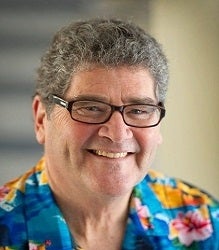
Thomas Stohlgren - 2015
Senior Scientist, Natural Resource Ecology Laboratory, Colorado State University
“Invasions from Inner Space: Species Invasion and Extinction”
Thomas Stohlgren is a leading authority in the field of biological invasions and holds numerous recognitions including several Partners in Conservation Awards and the Meritorious Service Award. His lecture touched on many points regarding transport, establishment, and effects of invasive species, as well as possible eradication strategies. A highlight of his talk was the parachuting mice laced with acetaminophen.
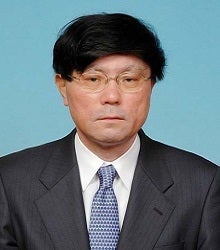
Norio Okada - 2012
Former Director & Professor, Disaster Prevention Research Institute
“Averting Disaster: Coping with Earthquakes, Tsunami and Nuclear Meltdowns”
Norio Okada is an expert in the management of physical and human systems, including natural disasters, the environment, water resources, and infrastructure. A former director and professor at the Disaster Prevention Research Institute at Kyoto University. His lecture will recall lessons learned from the Great East Japan Earthquake, presenting his Vitae Systems methodology for handling future events in a proactive, adaptive, and integrative fashion.
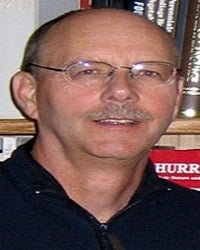
Roger Pielke Sr. - 2011
Senior Research Scientist/Associate, CIRES & University of Colorado
“Extreme Weather in the Coming Decades – What is the Role of Climate Change?”
Critical resources of water, food, energy, human health, and ecosystem function need protection from extreme weather. Join us as Dr. Pielke presents new perspectives being used by the climate change community to assess threats and determine how important they are relative to other social and environmental threats.
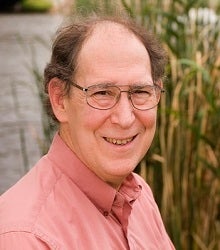
Stephen Schneider - 2010
Former Professor, Environmental Biology & Global Change, Stanford University
“Truth or Consequences: What can I do about Climate Change since I can’t negotiate with China?”
World-renowned climatologist, Dr. Stephen Schneider served as Waterloo’s TD Canada Trust Walter Bean Visiting Professor in the Environment in 2010. His impact was profound – as is his legacy of leadership in the battle to save the Earth’s climate.
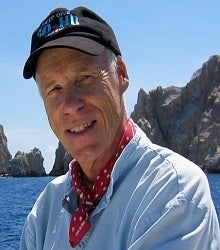
Joseph MacInnis - 2010
President, Undersea Research Ltd. Adviser, Titanic Discovery Team
“Leadership Lessons from the Gulf of Mexico”
Dr. Joe MacInnis has led over 20 deep-sea expeditions in the Atlantic, Pacific and Arctic oceans. From this unique vantage point, Joe will provide a rare glimpse into the devastating impacts of the oil spill.

Andras Szöllösi-Nagy - 2009
Former Reactor, UNESCO-IHE Chair, Intergovernmental Council of IHP Professor, National University of Public Service
“Water For the 21st Century: Will There Be Any?”
Szöllösi-Nagy is internationally recognized as an expert in hydrological forecasting and modelling, filtering techniques and statistical hydrology. Hydrology studies water in the earth and atmosphere, along with its distribution, uses and conservation. His lecture addressed the current water resource management practices and identified what needs to be done in the future.

Tavi Murray - 2008
Professor of Glaciology, Swansea University
“Warming Climate, Melting Ice: What is our Future?”
Internationally recognized as an expert on climate change and the stability of glaciers, Murray will examine whether it is already too late to reverse glacial melting in one of the fastest-changing parts of the Earth.

Steve Hrudey - 2006
Professor Emeritus, Analytical & Environmental Toxicology, University of Alberta
“150 Years and Counting: Drinking Water Safety Lessons are Learned Slowly”
A leading expert on environmental health risks, Steve Hrudey's lecture explores the safety of drinking water in Canada. Hrudey examines drinking water safety in Canada, ranging from the Walkerton disaster to the recent Kashechewan reservation evacuation. In an effort to emphasize the urgency of water safety measures given our technological advacements.
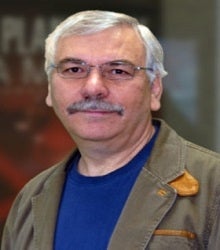
Frank Schwartz - 2005
Professor & Ohio Eminent Scholar in Hydrogeology, The Ohio State University
“Whisky’s for Drinking. Water’s for Fighting Over”
A researcher in contaminant hydrogeology and groundwater geochemistry, Schwartz used his expertise to discuss issues contributing to conflicts over water resources such as drought, population growth, profits and politics in North America and elsewhere.
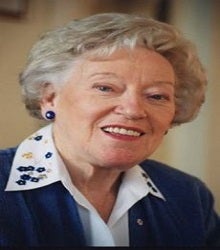
Flora MacDonald - 2004
Former Cabinet Minister
“Afghanistan: Failed State or Struggling Democracy”
The. Hon. Flora MacDonald served 16 years as Member of Parliament for Kingston and the Islands during which time she held three Cabinet positions. Since leaving Parliament she has been Chairperson of the International Development Research Centre in Ottawa; Visiting Fellow at the Centre for Canadian Studies at the University of Edinburgh; and in 1999 she was CoChair for Canada of the UN International Year of Older Persons.

Kelly Thambimuthu - 2003
Senior Scientist, CANMET Energy Technology Centre of Natural Resources Canada
“Fossil Fuels, Climate Change and Kyoto: Are We in a Fix?”
A leading international authority on climate change and fossil fuel, Kelly Thambimuthu lecture explores how we can eliminate harmful emissions from using fossil fuels for energy. In other words, the steps that can be taken now and until such time when the technology is available to effectively use alternative energy sources.
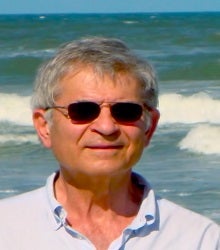
Jorg Imberger - 2002
Adjunct Professor, Rosenstiel School of Marine & Atmospheric Science, University of Miami
“Where the Water Flows: Energy Flux Paths in a Stratified Lake”
An expert on water flows and water resources, Jorg Imberger's lectures ties in his academic knowledge and first hand experience on the topic of energy flux paths in a stratisfied lake.

Naresh Singh - 2001
Visiting Senior Fellow, University of the West Indies Senior Research Associate, MERI
“Sustainable Livelihoods in Today’s World Insights from Systems Thinking and Complexity Theory”

Jeffrey Luvall - 2000
Senior Research Scientist & Forest Ecologist/Micro climatologist, NASA
“150 Years and Counting: Drinking Water Safety Lessons are Learned Slowly”

Joseph MacInnis - 1999
President, Undersea Research Ltd. Adviser, Titanic Discovery Team
“Titanic: In a New Light”


Ursula Franklin - 1994
Former Physicist/Metallurgist, University of Toronto
“Environment Versus Nature”